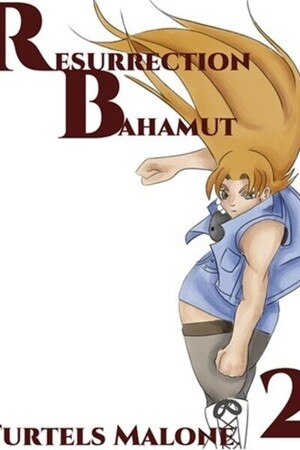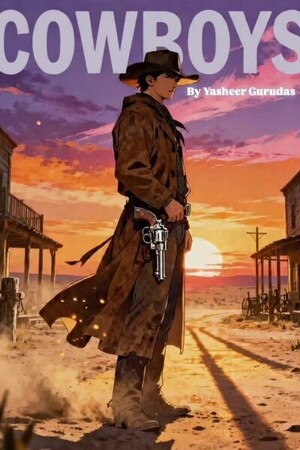Chapter 13:
Chapter 13: Blood and Sand
Arena of Legends
The arena had grown more ruthless, as if sensing the resolve of the warriors who still stood defiant. Sand swept across the labyrinth’s new terrain, forming a vast colosseum ringed with broken stone columns. The air was thick with dust, and the roar of invisible crowds echoed through the space, a haunting reminder of past glories and violent spectacles.
Spartacus stood in the center of this makeshift arena, his gladius gripped tightly in his fist. His battered shield had been discarded, the dents and splinters making it more a hindrance than a tool. He rolled his shoulders, his muscles aching but ready. The arena had reshaped itself into a battleground he knew all too well: a place where strength and survival were the only laws.
The sand shifted, and from beneath its surface emerged armored gladiators, their eyes hollow and glowing a spectral blue. They were constructs of the arena, phantoms forged from his past battles. Their movements were eerily familiar, mimicking the forms of fallen comrades and enemies he had once faced. Spartacus felt a pang of grief and rage, emotions he thought he had long since buried.
“So, you bring me ghosts of my past,” he growled, his voice thick with defiance. “Come, then! I will send you back to the dust.”
The gladiators attacked in unison, their swords and tridents gleaming in the desert sun. Spartacus moved with the fluidity of a predator, dodging the first thrust and slashing his gladius through the nearest construct. Sand exploded from the wound, but the ghost did not fall; instead, it reformed, its body solidifying as if made of the very arena itself.
He grunted, understanding now the trial before him. These were foes he could not simply cut down. He would have to break them, shatter them beyond the arena’s power to reform.
From the edge of the colosseum, Joan of Arc watched, her heart heavy with the weight of the arena’s cruelty. She had been drawn to this place by the sound of battle, and now she saw Spartacus fighting, his movements fierce and unrelenting. Yet she sensed the weariness in his soul, the ghosts that haunted him not just in form but in spirit.
She took a step forward, her sword raised, and called out to him. “Spartacus! You do not fight alone.”
Spartacus turned, his eyes narrowing at the sight of her. “The girl with faith,” he muttered, though there was no mockery in his tone. “This is my battle. These are my demons.”
Joan met his gaze, her blue eyes unyielding. “Faith does not let others stand alone,” she declared. “Even the strongest warrior needs a shield.”
The words were barely spoken when the sand erupted once more, and more constructs appeared, these ones wearing the armor of medieval knights. Joan’s heart clenched as she recognized the symbols on their tabards: the fleur-de-lis, the very mark she had fought for. They advanced on her, spectral echoes of the crusaders who had once followed her banner, now twisted into weapons of the arena.
Tears pricked at her eyes, but she steeled herself. “Forgive me,” she whispered, though she knew these were not truly the souls of her companions. With a fierce cry, she charged forward, her sword clashing against their shields. Each strike sent vibrations up her arms, but she pressed on, refusing to let the past claim her spirit.
Spartacus fought with a fury honed by years of rebellion, each swing of his gladius a testament to the strength that had driven him to defy Rome. But he could not deny the exhaustion creeping into his limbs. The constructs moved with a tireless precision, and every time he struck one down, it reformed, relentless as the tide.
He caught sight of Joan battling her own ghosts, her movements swift and resolute. The two warriors, so different yet equally driven, fought side by side. For a moment, Spartacus felt something he had not allowed himself to feel in years: camaraderie, the sense of fighting for something greater than himself.
“Joan!” he called, parrying a strike and kicking one of the constructs back. “This arena seeks to wear us down. We must find a way to break these illusions.”
Joan, her breath coming in ragged gasps, blocked a blow from a spectral knight and spun away, her eyes flicking to the colosseum’s surroundings. The broken columns and shifting sand offered no clear solution, but her faith had always guided her through the darkest of times.
“The heart of their strength lies in our pasts,” she said, a light of understanding dawning in her gaze. “We must deny them their hold over us.”
Spartacus frowned, slicing through another phantom. “And how do we do that, girl?” he demanded, frustration flaring. “These are memories, wounds that do not heal.”
Joan steadied herself, her voice lifting in a prayer, strong and unwavering. “By choosing to let go,” she whispered, her words more to herself than to Spartacus. She stepped back from the battle, lowering her sword. Her eyes closed, and she spoke softly, a prayer of forgiveness and release, a plea to let the past rest.
The spectral knights hesitated, their forms flickering, as if confused. Spartacus, seeing the effect, took a step back as well, though his warrior instincts screamed at him to keep fighting.
“Forgiveness?” he muttered, disbelief coloring his tone. But then he thought of the chains, the pain, the endless cycle of violence he had endured. He took a breath, the hardest breath he had ever taken, and loosened his grip on his rage.
The constructs wavered, their bodies unraveling into streams of sand. Joan’s voice rang out, pure and clear, and the arena seemed to shudder in response. The phantoms dissolved, the colosseum’s roar fading into an uneasy silence.
Spartacus stood still, his gladius lowered, his breath harsh in the quiet. He looked at Joan, his expression unreadable. “Faith and forgiveness,” he said, his voice rough. “I never thought I’d see the day.”
Joan offered him a weary smile, her own body trembling from the strain. “Even warriors must make peace with their pasts,” she replied softly.




Please sign in to leave a comment.